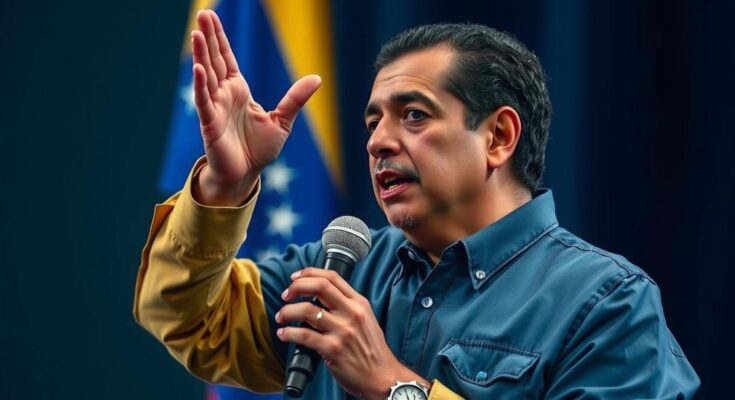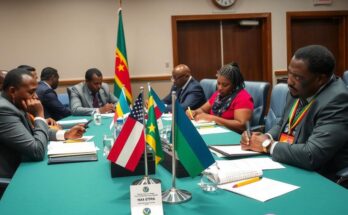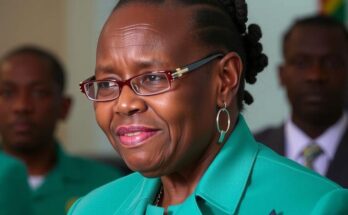The U.S. has recognized Venezuelan opposition candidate Edmundo González as president-elect months after a disputed election wherein President Maduro claimed victory. Secretary of State Antony Blinken emphasized respect for voters’ will. Disputed election results have led to international calls for transparency, and González, now in exile, asserts significant support from the populace. The political tensions continue to evolve with opinions on the electoral process shifting among regional leaders.
The United States government has officially recognized Edmundo González, the opposition candidate in Venezuela, as the country’s “president-elect,” several months after President Nicolás Maduro claimed victory in the disputed election held on July 28. U.S. Secretary of State Antony Blinken expressed this recognition via a post on X, emphasizing the importance of respecting the will of the Venezuelan voters, a sentiment echoed by González, who stated that such recognition honors the desire for change among the populace. In the wake of the election, the National Electoral Council, dominated by Maduro loyalists, declared him the winner without providing detailed vote counts. However, an opposition coalition gathered data from approximately 80% of Venezuela’s electronic voting machines, suggesting that González secured twice as many votes as Maduro. This finding has fueled ongoing tension regarding electoral legitimacy, prompting international calls for transparency from various organizations and nations. González fled to Spain in September following an arrest warrant related to the investigation of vote tally publications. Venezuela’s Foreign Minister reacted to the U.S. recognition with a personal attack on Secretary Blinken, neglecting substantive discourse on the election results. The Maduro administration has consistently resisted external demands for detailed electoral records and has since appointed the Supreme Tribunal of Justice, comprised of government-aligned members, to affirm the election results. Meanwhile, experts from the United Nations and the Carter Center have declared that the electoral proceedings lacked credibility, though they acknowledged the legitimacy of the opposition’s published voting records, which bore original security features. Colombia’s President Gustavo Petro had previously supported the Venezuelan elections but has recently changed his stance, labeling them a “mistake.” This remark emerged amidst his visit to Brazil for the G20 summit, marking a notable shift in his position regarding the electoral process that faltered under scrutiny. With Venezuela’s next presidential term commencing on January 10, and Maduro poised for a swearing-in ceremony, the political landscape remains fraught with contention.
The recognition of Edmundo González as Venezuela’s president-elect comes in the context of a highly disputed election process, where President Nicolás Maduro asserted victory amidst allegations of electoral fraud and lack of transparency. Various international observers, including those from the United Nations and the Carter Center, have raised doubts about the credibility of the election results. Furthermore, the Venezuelan electoral body, largely seen as biased towards Maduro, has not provided detailed counts, leading to widespread skepticism about the legitimacy of the electoral outcome. The evolving political dynamics, especially with countries like Colombia reversing their support for the elections, reflect the intricate web of diplomatic relationships in the region.
The recent recognition of Edmundo González by the U.S. government as Venezuela’s president-elect highlights the ongoing debate surrounding the legitimacy of the July elections, characterized by opposition claims of significant fraud. This situation underscores the complexities within Venezuela’s political landscape, amidst international scrutiny and internal dissatisfaction with the ruling government. As the January 10 presidential term nears, the future governance and direction of Venezuela remain uncertain, fraught with challenges arising from domestic and international pressures.
Original Source: apnews.com




